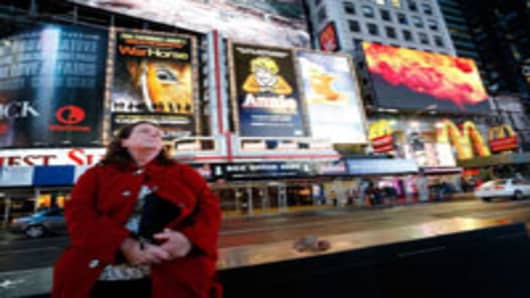New Jersey's law is very specific. Price increases of more than 10 percent during a declared state of emergency are considered excessive. A New Jersey gas station paid a $50,000 fine last year for hiking gasoline prices by 16 percent during tropical storm Irene.
(Read More: Scenes From Hurricane Sandy)
New York's law may be even stricter. According to AG Schneiderman's release, all price increases on "necessary goods and items" count as gouging.
"General Business Law prohibits such increase in costs of essential items like food, water, gas, generators, batteries and flashlights, and services like transportation, during natural disasters or other events that disrupt the market," the NY AG release said.
These laws are built on the quite conventional view that it is unethical for a business to take advantage of a disaster in pursuit of profits. It just seems wrong for business owners to make money on the misery of their neighbors. Merchants earning larger profits because of a disaster seem to be rewarded for doing nothing more than raising their prices.
"It's reverse looting," a neighbor of mine in Brooklyn said about the price of batteries at a local electronic store.
Unfortunately, ethics runs into economics in a way that can make these laws positively harmful. Price gouging can occur only when there is a shortage of the goods in demand. If there were no shortage, normal market processes would prevent sudden price spikes. A deli charging $4 for a can of Pepsi would discover he was just driving customers to the deli a block away, which charges a buck.
But when everyone starts suddenly start buying batteries or bottles of water for fear of a blackout, shortages can arise. Sometimes there simply is not enough of a particular good to satisfy a sharp spike in demand. And so the question arises: how do we decide which customers get the batteries, the groceries, the gasoline?
We could hold a lottery. Perhaps people could receive a ticket at the grocery store. Winners would get to shop at the usual prices. Losers would just go hungry. Or, more likely, they would be forced to buy the food away from the lottery winners—at elevated prices no doubt, since no one would buy food just to sell it at the same price. So the gouging would just pass from merchant to lottery winning customer.
We could have some sort of rationing program. Each person could be assigned a portion of the necessary goods according to their household need. This is something the U.S. resorted to during World War II. The problem is that rationing requires an immense amount of planning—and an impossible level of knowledge. The rationing bureaucrat would have to know precisely how much of each good was available in a given area and how many people would need it. Good luck getting that in place as a hurricane bears down on your city.
We could simply sell goods on a first come, first serve basis. This is, in fact, what anti-gouging laws encourage. The result is all too familiar. People hoard goods. Store shelves are emptied. And you have to wonder, why is a first to the register race a fairer system than the alternative of market prices? Speed seems a poor proxy for justice.
Allowing prices to rise at times of extreme demand discourages overconsumption. People consider their purchases more carefully. Instead of buying a dozen batteries (or bottles of water or gallons of gas), perhaps they buy half that. The result is that goods under extreme demand are available to more customers. The market process actually results in a more equitable distribution than the anti-gouging laws.
Once we understand this, it's easy to see that merchants aren't really profiting from disaster. They are profiting from managing their prices, which has the socially beneficial effect of broadening distribution and discouraging hoarding. In short, they are being justly rewarded for performing an important public service.
(Read more: Sandy Wreaks Havoc, Economic Impact Not Yet Clear)
One objection is that a system of free-floating, legal gouging would allow the wealthy to buy everything and leave the poor out altogether. But this concern is overrated. For the most part, price hikes during disasters do not actually put necessary goods and services out of reach of even the poorest people. They just put the budgets of the poor under additional strain. This is a problem better resolved through transfer payments to alleviate the household budgetary effects of the prices after the fact, rather than trying to control the price in the first place. (Note: it's probably better if people don't expect this kind of assistance ahead of time, since knowing you'll get it could artificially drive up demand.)
Instead of cracking down on price gougers, we should be using our experience of shortages during this time of crisis to spark a reform of our counter-productive laws. Next time disaster strikes, we should hope for a bit more gouging and a lot fewer empty store shelves.
Follow John on Twitter. (Market and financial news, adventures in New York City, plus whatever is on his mind.) You can email him at john.carney@nbcuni.com.
We also have two NetNet Twitter feeds. Follow CNBCnetnet for the best of the days posts, including breaking news. Follow NetNetDigest for a feed of every single post each day.
You can also be our friend on Facebook. Or subscribe to John's Facebook page.
We're on Google Plus too! Click here for John's Google page.
Questions? Comments? Tips? Email us at NetNet@cnbc.com or send a text message to: 917-740-8477.
Call us at 201-735-4638.



